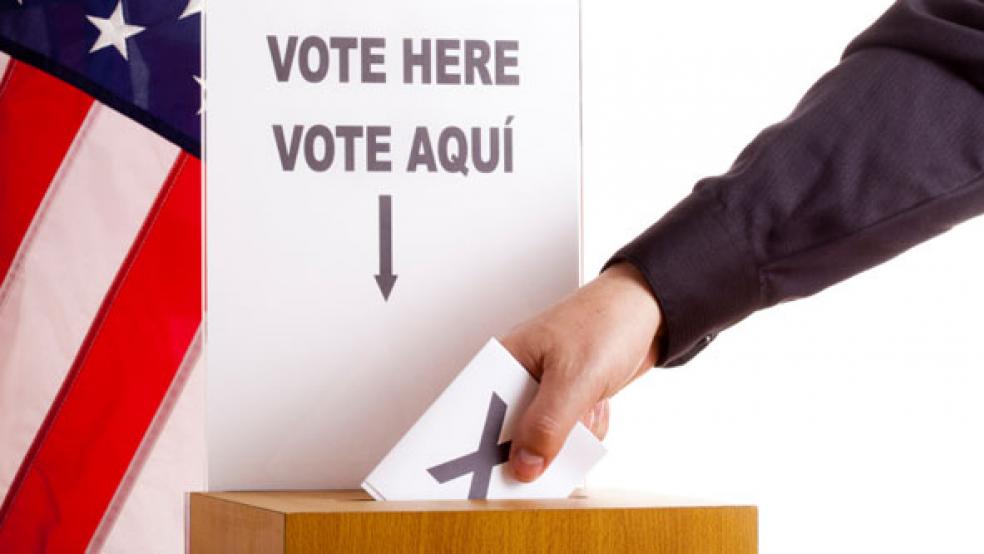Two top figures in the Republican Party in the past few days have demonstrated the privilege that comes with having nothing left to lose.
John Boehner, the Ohio Republican whose two and a half terms as Speaker of the House have been marked by constant opposition from the disproportionately influential hard-right wing of his party’s caucus, on Friday announced his impending resignation. Afterward, he made it clear that he was planning to ram a number of significant pieces of legislation through the House, with Democratic support, that might well have cost him his job anyway.
Related: Even Conservative Admit Trump’s Tax Plan Would Add Trillions to the Deficit
On Tuesday, Republican National Committee Chairman Reince Priebus took on a different, but no less fearsome, opponent: the early voting states Iowa and New Hampshire.
In an interview with National Journal, Priebus said that there was no obvious reason why the voters of Iowa and New Hampshire ought to have the first crack at endorsing a major party presidential candidate.
“I don’t think there should ever be any sacred cows as to the primary process or the order,” he said.
“It’s a hot topic. These early states are very used to fighting this out every four years. It’s just something I think we ought to look at as a party,” he continued. “If you look at my history, I’ve been very supportive of the early states as general counsel and as chairman. But I don’t think anyone should get too comfortable.”
Related: Here Is Biden’s Big Advantage Over Clinton
Predictably, politicos in Iowa and New Hampshire promptly went to DEFCON 5. In New Hampshire, the Republicans didn’t even need to lift a finger as Democratic Secretary of State William Gardner and Democratic Gov. Maggie Hassan both pledged to maintain the Granite State’s first-in-the-nation primary status.
New Hampshire even has a law on the books requiring it to hold its primary seven days prior to any other similar election held in another state. (The RNC, however, can render that primary meaningless if it so chooses, by refusing to certify the state’s delegates to the party convention next year.)
The Republican Party of Iowa was equally dismissive, noting that previous attempts to replace it as the first state to hold a caucus have all failed.
Republican presidential candidates quickly fell in line. Ohio Gov. John Kasich said that Iowa and New Hampshire voters “take their responsibility seriously and are among the most active, knowledgeable voters anywhere in the nation. By requiring that candidates engage directly with the voters, every candidate is tested and judged fairly.”
Related: Here’s How Trump’s Tax Plan Would Affect You
Former Florida governor Jeb Bush took to Twitter Tuesday afternoon to defend New Hampshire’s position.
Pleased to be headed back to the Granite State, which is and should remain, first in the nation. See ya tonight #fitn
— Jeb Bush (@JebBush) September 29, 2015
Of course, what else were they going to do? Regardless of what Priebus says now, the calendar for the 2016 primaries won’t be changing, and alienating voters in Iowa and New Hampshire is political suicide for any presidential candidate.
But Priebus, who won’t be serving another term as RNC chair, was free to raise the possibility of changing a process that, arguably, disadvantages the GOP’s eventual presidential nominee. And in doing so, he may have done his party a big favor.
It’s no secret that the GOP has, for years, been increasingly reliant on the votes of older, whiter Americans. Non-white voters identify disproportionately with the Democratic Party, and the Republicans have struggled to make inroads in non-white demographics.
It doesn’t help that the two biggest events in the primary election cycle – votes that have driven candidates who fared poorly to drop out – take place in a coupe of the whitest states in the Union.
Related: Forbes Confirms It – Trump Is Exaggerating His Wealth
Iowa and New Hampshire, while well conditioned to hosting political primaries, are actually wildly unrepresentative of the U.S. as a whole. Both are overwhelmingly whiter and older than the average U.S. state.
For a political party that identified its inability to attract minority voters as a key problem driving its failure in recent presidential elections, the fact that primary candidates have a huge incentive to pander to older white voters in order to get a boost from the first two states to vote is no small problem.
Priebus can’t change things for the 2016 election, but he’s also got nothing to lose in terms of his future with the RNC. Pushing his party to diversify the states whose citizens get the first say in who the eventual nominee will be could turn out to be his most significant legacy.





